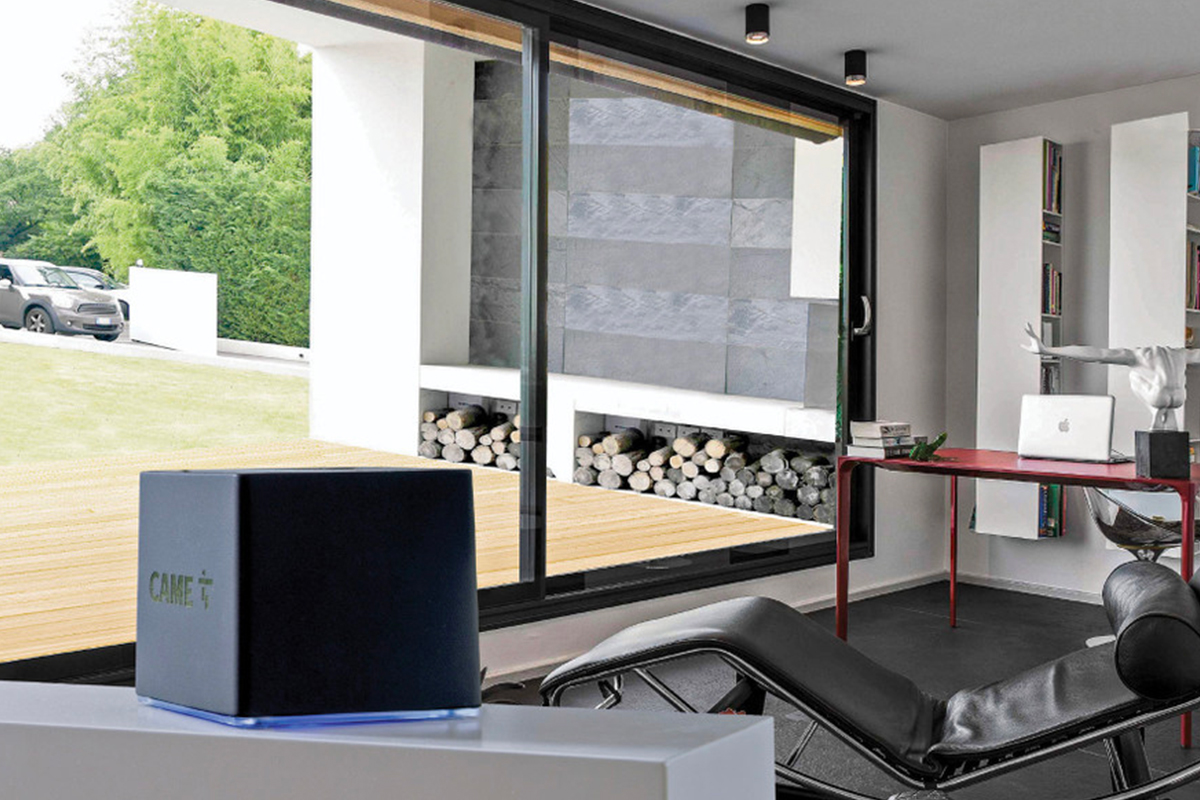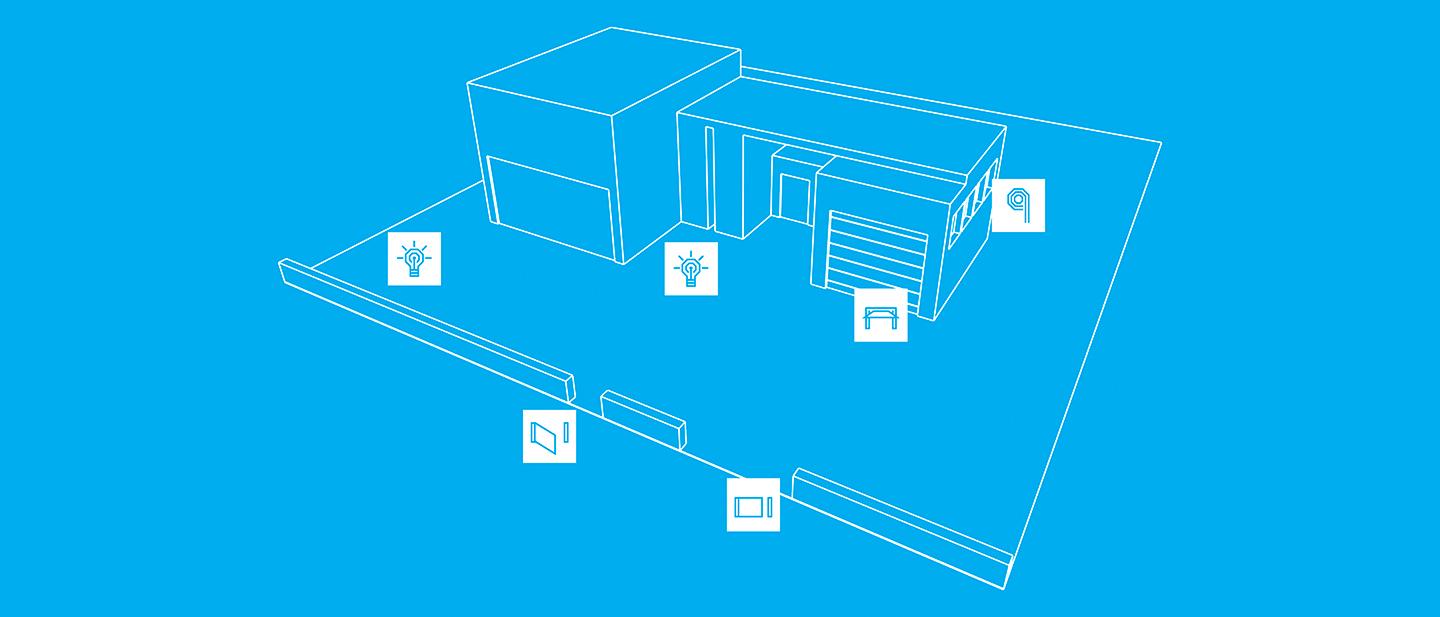Today, the Smart Home Technology market is characterised by the increasing adoption and diffusion of smart home devices. This sector is gaining popularity as technologies are more and more accessible, reliable, and easy to use.
Let's dive into this topic for some clarifications and to present the most popular solutions.
What is a Smart Home?
Smart Home indicates a set of integrated and networked devices that automate various functions within a home and can communicate both with each other and a centralised control interface.
The main purpose of this type of system is to improve comfort, safety, energy efficiency, and management of household resources.
Here are some of the aspects we can digitally control:
• Lighting
• Blinds and shutters
• Heating
• Air conditioning
• Security systems
• Energy management
• Household appliances
• Audio/video systems
The Smart Home systems are now commonly used as they respond to the needs of an increasingly digitised society interested in using technologies that improve everyday life.

Difference between Home Automation and Smart Home
Even if the difference between Smart Home and Home Automation is subtle, and people often use them interchangeably, there is an important distinction we want to highlight.
While Home Automation controls all the devices and functionalities within a house through the wiring of the electrical system with a Bus protocol and thanks to a dedicated central unit that manages all the information of the installed devices, Smart Home refers to a system in which the devices are not necessarily interconnected and operate wirelessly.
In the first case, the implementation implies the help of a professional for the design and integration of the system, as structural work on the building is required (an ideal option in the case of buying a new house or renovation work); in the second case, the structural work is not necessary and everything can be managed in a simplified manner, even on existing buildings.
Therefore, while Smart Home is a simpler system to adopt, easy to implement in a short time, and which only works with remote control (inside and outside the home), Home Automation allows centralised management remotely and locally (even if an Internet connection is missing). Smart Home System requires lower costs, which instead increase with Home Automation.
Both solutions have advantages, so which one should you choose? It depends on your specific needs.
Smart Home Solutions: a rising market
Research by the Digital Innovation Observatory of the School of Management of the Politecnico di Milano shows that the Smart Home solutions market is growing, both in Italy and abroad.
2022 data clearly show the success of Smart Homes:
+18% in Italy, corresponding to a turnover of €700 million
+10% in Spain, corresponding to a turnover of €530 million
+9% in the USA, corresponding to a turnover of €19.8 billion
+4% in the UK, corresponding to a turnover of €4.1 billion
+2% in France, corresponding to a turnover of €1.3 billion
In 2022, the Smart Home market slowed down only in Germany (-5%) but still recorded a total turnover of 3.7 billion.
The need to optimise energy consumption, the desire to make homes safe, and offer family members and guests more comfort, are the reasons behind people's constantly growing demand to install digital devices in their homes.

IoT for the house and most popular devices
People mainly ask for those IoT (Internet of Things) technologies and interconnected devices able to reduce consumption, prevent theft and intrusions, perform daily tasks remotely, and manage technologies connected to the digital home system.
Energy-saving products
House energy management has become essential both to reduce bills and limit environmental impact.
Today, people chose smart devices to optimise electricity and gas supply costs. These allow remote monitoring of consumption, action on heating and air conditioning system settings, and blinds and shutters automation.
Home control/security hardware
People are increasingly concerned about security and privacy in their homes: for this reason, they decide to install surveillance systems that consist of interconnected devices manageable from smartphones, tablets, and other commonly used mobile devices.
Today's security systems involve cameras, motion sensors, and advanced video intercoms that can store images in the cloud and make emergency calls using the internet connection and the telephone line.
Smart household appliances
In a Smart Home, we can include various types of large and small household appliances, which make their functions simpler and more efficient.
Thanks to voice commands and management via apps downloaded onto smartphones, it is possible to easily control and monitor the operations of many household appliances, such as washing machines, dishwashers, air conditioners, ovens, refrigerators, coffee machines, robot vacuum cleaners, lamps, and entertainment systems.
Smart Speakers
Smart speakers have become real virtual assistants that allow you both to search the web or specific apps and to use other devices connected to them through voice commands.
When you are at home, your smart speaker becomes the hub of the Smart Home System.
CAME Smart Home Devices
CAME developed the QBE Smart Home, a single device to manage the different automated systems inside a house.
Through their smartphone or Alexa, the homeowner can act on various devices and systems:
• Lights
• Gates
• Garage doors
• Blinds
• Roller shutters
• Irrigation systems
• Thermostats
• Alarms
QBE does not require a wired connection (so you won't need masonry work for the installation), and it allows for customised scenarios.




